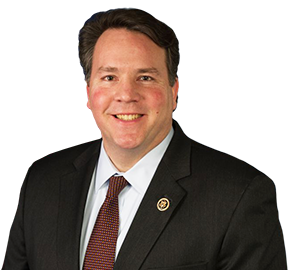Mooney introduces act to better technical education
The Technical Education and Career Help Act, also known as the TEACH Act, was introduced by Congressman Alex Mooney (R-WV) on Tuesday.
Under the TEACH Act, allocated grant funding issued for Higher Education will be able to be put towards training of teachers in a vocational and technical setting.
“Currently, Higher Ed funding doesn’t allow for teacher training. This corrects that, and I believe that this is important to West Virginia for vocational education,” Mooney said.
Title II of the Higher Education Act provides grant funding to help improve the quality of prospective teachers at post-secondary institutions and local schools. To date, none of these grants have been focused on career and technical education.
The TEACH Act would allow the Title II Teacher Quality funds, about $40 million a year, to be used to give aspiring CTE teachers the preparation necessary to better lead in the CTE classroom.
“Students would benefit from this as well. They deserve to be taught by well-trained instructors to get the best education,” Mooney said.
“Training needs vary, especially in technical fields; take cyber security, for instance. There is a constant need to train in this dynamic economy. This is an acknowledgement of this reality,” Mooney added.
The TEACH Act is designed to help recruit mid-career professionals in relevant technical fields, recent college graduates, veterans and currently licensed teachers who are interested in transitioning to CTE-focused education.
Mooney also said this bill will be an incentive to keep teachers at the community college level.
“They are an integral part to education, especially in West Virginia where so many of our students choose to receive training and get careers in the technical fields. We want to keep them in these schools,” Mooney said.
The TEACH Act amends the Higher Education Act by:
Establishing a grant that will facilitate CTE-specific partnerships with high-needs schools and post-secondary institutions to train CTE teachers
Requiring that CTE teacher-training initiatives consist of at least a one-year residency initiative with a high-needs school and include teacher mentorship for a minimum of two years
Ensuring exposure to workforce opportunities for students by requiring that prospective teachers have work experience in the field in which they will teach or, in the case of recent college graduates, have demonstrated proficiency through relevant coursework
Requiring grantees to complete an evaluation that includes measurable performance objectives to determine the partnership’s impact
Mooney said he is dedicated to keeping the bill bi-partisan.
“I am hoping it will pass and I want to keep this strictly bipartisan. Currently, there are four Republicans and four Democrats supporting it and right now is it pretty balanced geographically. I plan to keep bringing on support two at a time to keep it level,” Mooney said.
“Every congressional district has students who want to enter into these types of careers. Certainly, I would think they have seen a similar need in their area,” Mooney added.
Mooney said he hopes to have this reviewed and passed sometime next year.
Staff writer Katiann Marshall can be reached at 304-263-8931, ext. 182, or at Twitter.com/KmarshallJN.

